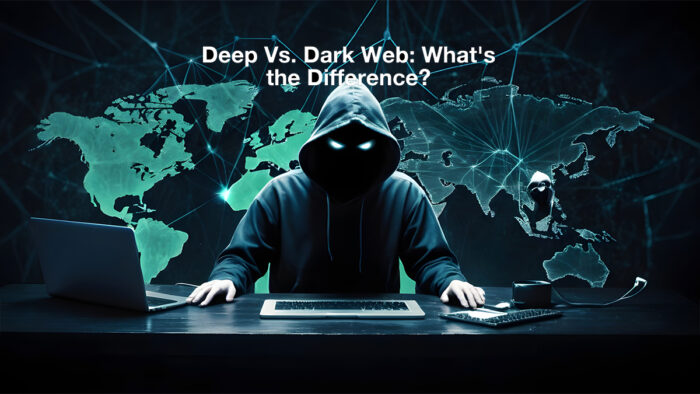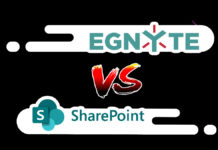The deep web and the dark web are mostly used interchangeably, but you need to know that they are two different concepts. And understanding the difference is very important, especially if you want to enjoy their benefits. Knowing the difference between them allows you to know the risks associated with these portions of the internet.

Also, you will get to understand the need for data privacy online. In this guide, we will explain the difference between the deep web and the dark web. We will also provide you with certain information you need to know about the dark web and the deep web.
What is the Deep Web?
The deep web refers to web pages that are hidden and are not indexed by search engines, but they can be accessed through normal browsers. It contains non-indexed content that is not reachable by the web crawlers used by search engines to link and locate pages.
The pages are often protected by a password, pay wall, or other means of limiting public access. They are made to be private. Examples of these pages include email accounts, web databases, and account pages on different sites.
They may include internal company sites and data that may be accessed through the internet but is secured by authentication. According to research, 90–96% of the internet lies within the deep web.
What is the Dark Web?
The dark web is a small section of the deep web. It is inaccessible through traditional browsers. You can access it through a Tor-enabled browser or I2P. This part of the internet helps to hide identities, locations, and content from their parties that are common on the surface web.
Although it is used to conceal different illegal activities such as drugs, fire arms, cybercriminals, stolen data and information, and other illegal services, it is not bad at all.
In fact, Tor was created by the United States government for legal purposes. The dark web can also be used to protect the anonymity of whistleblowers, activists, journalists, and other people whose lives would be at risk if they used a non-anonymous site to showcase their works.
Key Differences between the Deep Web and the Dark Web
As previously stated, the Dark Web is technically a subset of the Deep Web. Here are some of the key differences between them:
| Deep Web | Dark Web |
| Makes up 96% of the internet | Make up about 5% of the internet |
| Designed to protect users information stored online | Designed to make online activities anonymous |
| Although it can’t be indexed by search engines, it can be accessed through traditional web browsers such as Chrome, Firefox, etc. | It can only be accessed through unique browsers that make use of Tor to protect anonymity. |
| It is very safe and secure to use | It is also safe to use when browsing, but dangers come when you download illegal stuff that contains malware and viruses. |
These two share recognizable traits, but they are used for different reasons. Knowing how they mix with the surface web can help develop safe web-native apps and many more. Here are the main differences between the two:.
Are the Deep Web and the Deep Web illegal?
Making use of a Tor browser or trying to access these pages is perfectly legal. Just because you can’t access them via search engines does not mean they contain illicit activity. What is illegal is using them for activities like drugs, stealing information, and other illicit activities.
What are the Risks Involved?
The deep web is a place where you need to provide your details for you to have access to online services like e-banking, email, and social media. So, it is normal for it to attract attention from people who want to get hold of your data by running scams like fake login attempts, phishing, malware, and many more.
The dark web, on the other hand, derives from the contents that it hosts. It is mostly used for criminal activities. And it possesses the risk of scams, malware infections, disturbing, or illegal content. So, if you are not careful enough, you can fall for scams and give away your personal information.
How to Stay Safe on the Dark Web and the Deep Web
Just like I have mentioned above, these two carry risks, but you can access them safely. You can enhance your security and privacy by using a VPN, a reputable dark web browser, a strong password, installing updates, and taking security precautions.
Also, ensure that you do not click on or download links that you know nothing about or that look dangerous. Before you go to the dark web, ensure that you educate yourself well. And make sure that you have strong security software on your laptop and devices. This will help to ensure the security and privacy of your data.



